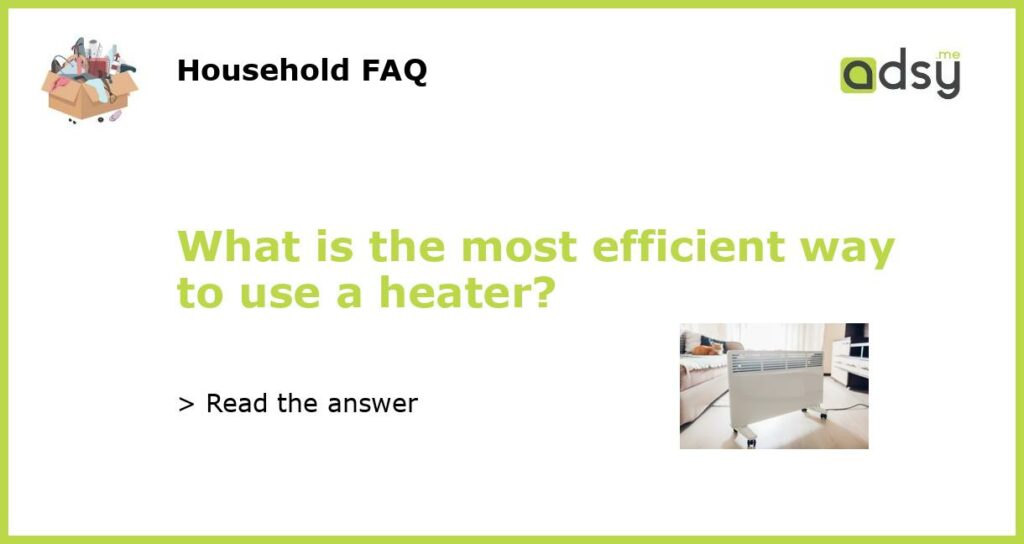Choosing the Right Heater for Your Needs
When it comes to efficiently using a heater, the first step is choosing the right one for your needs. There are several types of heaters available, including electric, gas, and radiant heaters. Each type has its own benefits and drawbacks, so it’s important to consider factors such as the size of the space you need to heat, your budget, and your energy efficiency goals before making a decision.
If you’re looking for a portable heater that can quickly warm up a small area, an electric heater might be your best option. These heaters are typically more energy efficient and cost-effective than gas heaters, making them a popular choice for many households.
On the other hand, if you’re looking to heat a larger space or have a central heating system in your home, a gas heater may be a better choice. Gas heaters can provide consistent and powerful heat, making them ideal for larger rooms or open areas.
Proper Placement to Maximize Efficiency
Once you’ve chosen the right heater for your needs, the next step is to properly place it in the room to maximize its efficiency. The placement of your heater can significantly impact its ability to effectively warm the space, so it’s important to consider a few key factors.
First, avoid placing your heater near any obstructions, such as curtains or furniture, as these can block the heat from spreading throughout the room. Additionally, try to place your heater in a central location within the room, as this will allow the heat to be evenly distributed.
Furthermore, it’s important to consider the size of the room when placing your heater. In smaller rooms, choose a heater with a lower heat output, as using a heater that is too powerful for the space can waste energy and result in uneven heating. In larger rooms, opt for a heater with a higher heat output to ensure efficient and effective heating.
Setting the Temperature and Timer
To maximize the efficiency of your heater, it’s important to set the temperature and timer appropriately. Most heaters come with adjustable thermostat settings, allowing you to select your desired temperature.
To save energy and reduce costs, it’s recommended to set your heater to the lowest temperature that is still comfortable for you. Every degree higher can significantly increase energy consumption, so finding the balance between comfort and efficiency is important.
Additionally, utilizing the timer function on your heater can help further improve efficiency. Setting the timer to turn on the heater shortly before you enter the room and turning it off when you leave can help conserve energy and prevent unnecessary heating when the space is unoccupied.
Utilizing Additional Insulation
Another way to improve the efficiency of your heater is by utilizing additional insulation in your home. Proper insulation can help reduce heat loss and keep the warm air trapped inside, allowing your heater to work more effectively.
Consider adding weather stripping to doors and windows to prevent drafts, and make sure your attic and walls are properly insulated. By reducing heat loss, you can reduce the workload on your heater and maintain a comfortable temperature in your home.
Regular Maintenance for Optimal Performance
Lastly, regular maintenance is key to ensuring your heater operates at its optimal performance. Dust and debris can accumulate on the heating elements, reducing their efficiency and potentially causing a fire hazard, so it’s important to clean your heater regularly.
Refer to the manufacturer’s instructions for guidance on how to safely clean your specific heater. Additionally, consider scheduling regular professional maintenance to ensure all components are in good working order and to address any potential issues before they become major problems.






